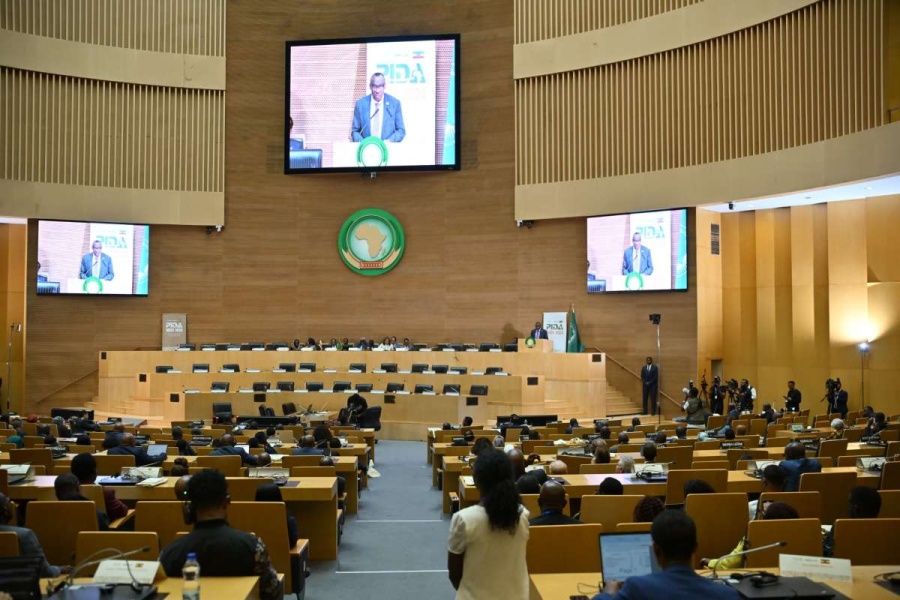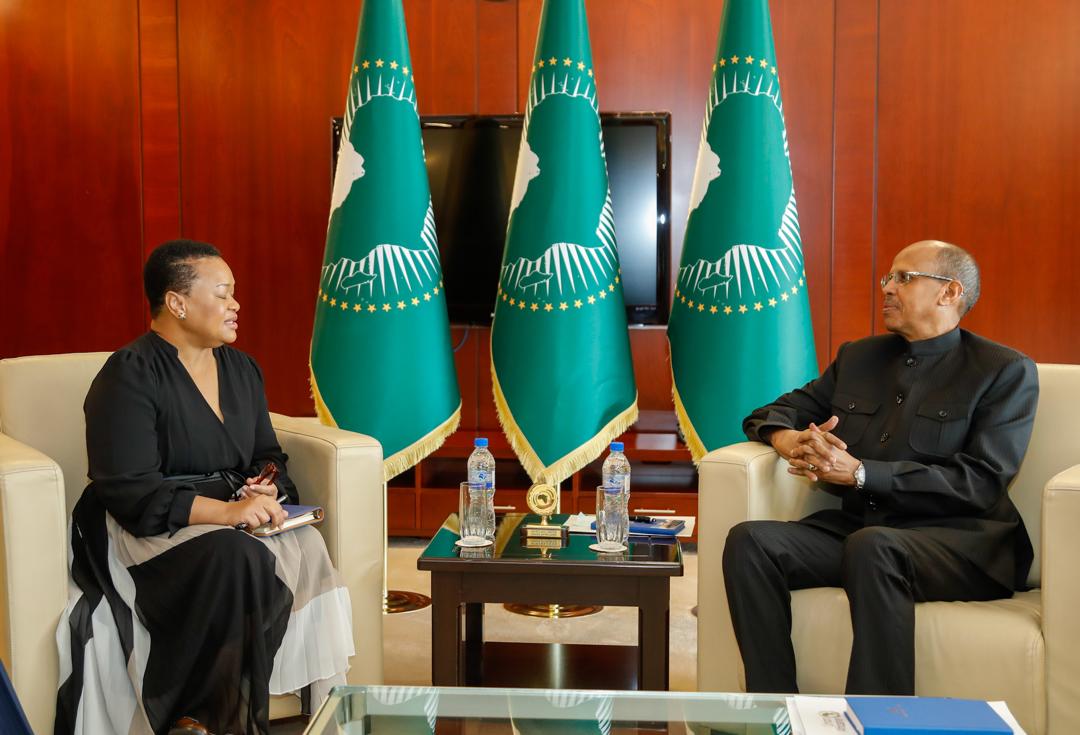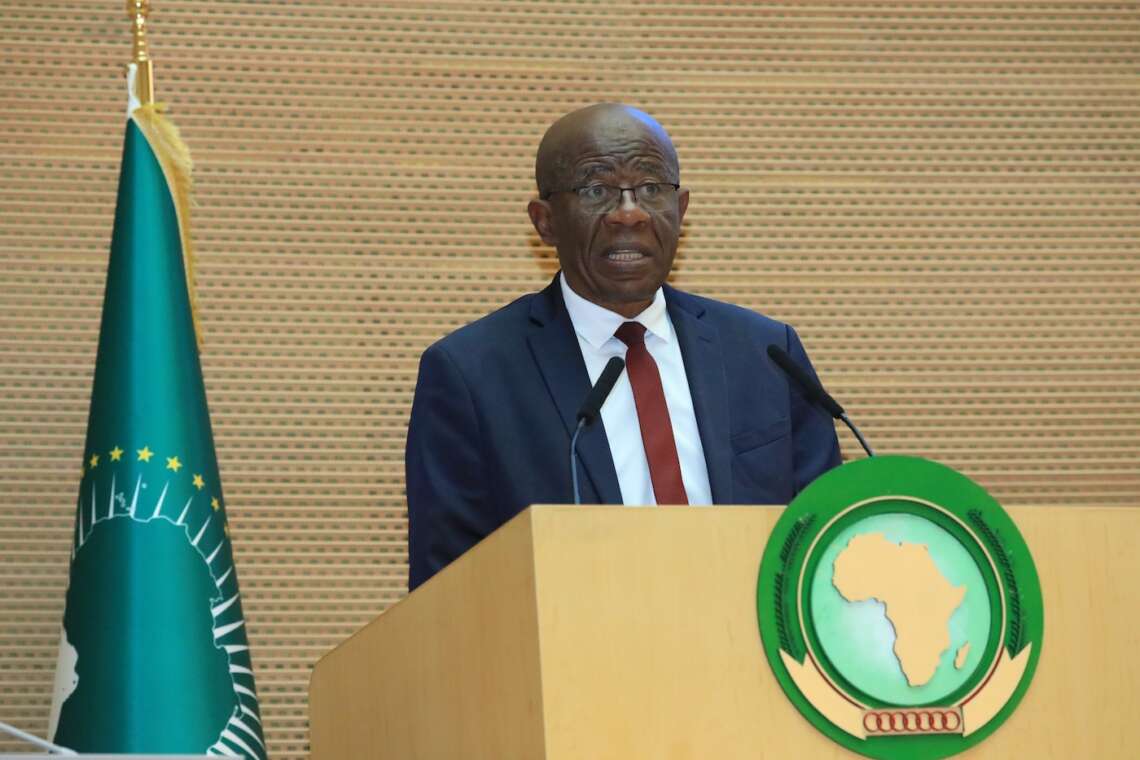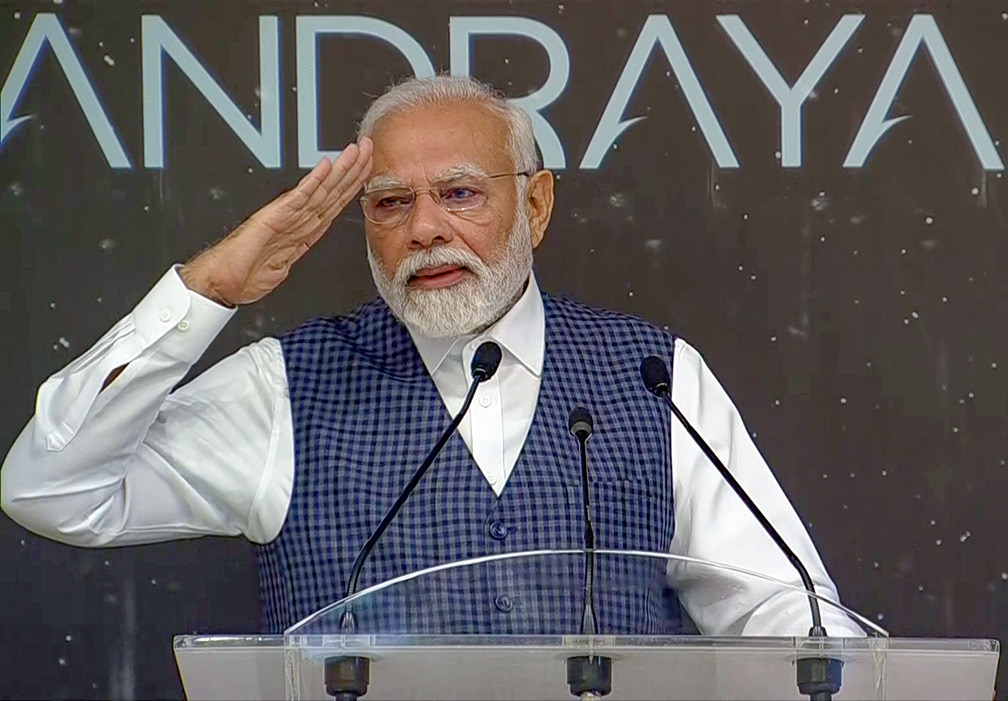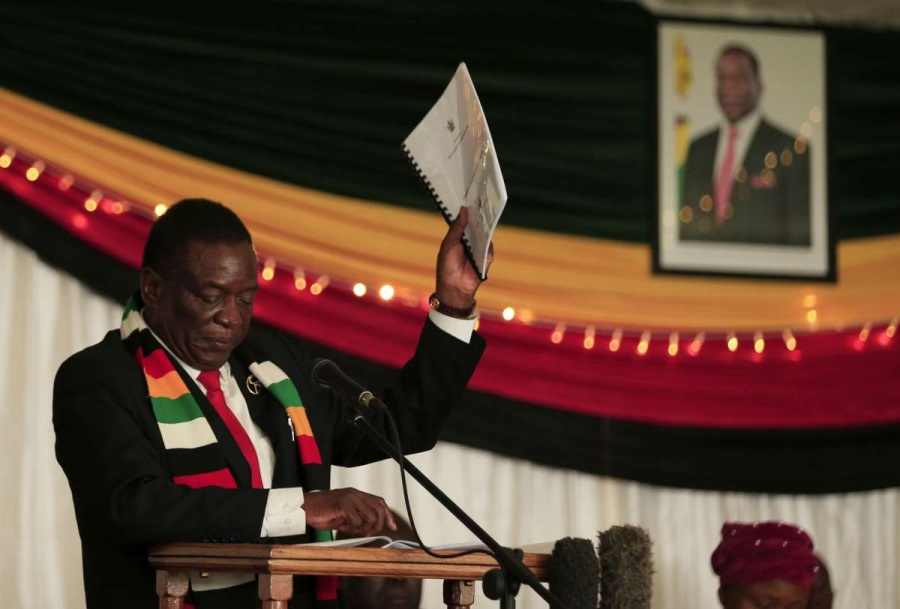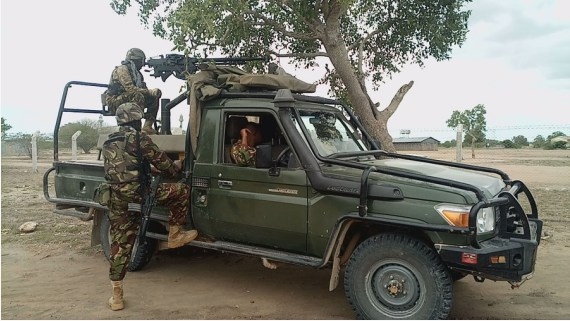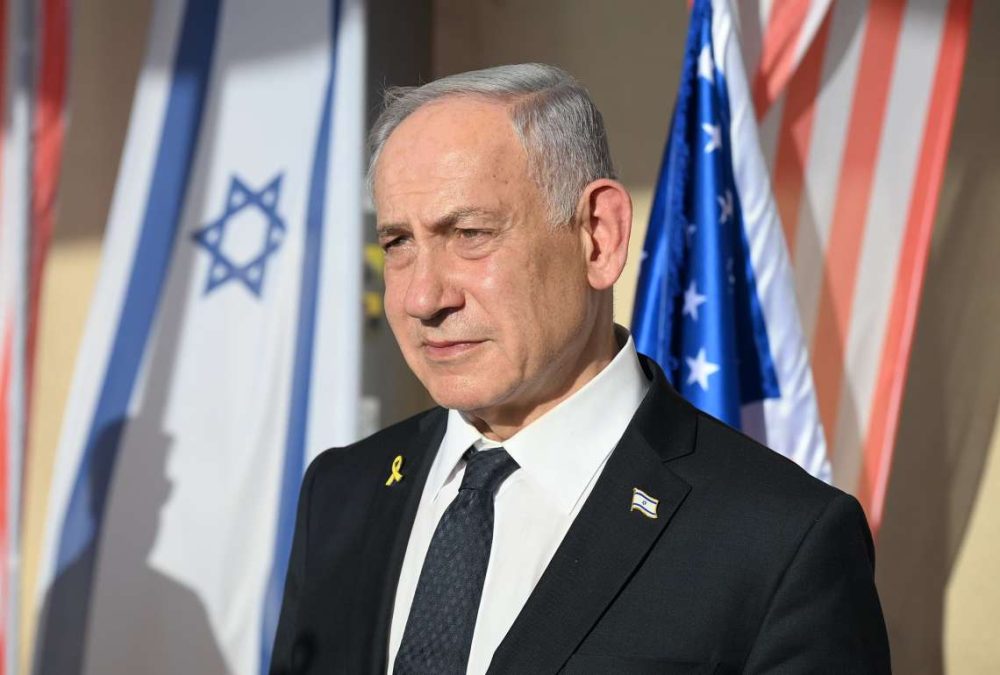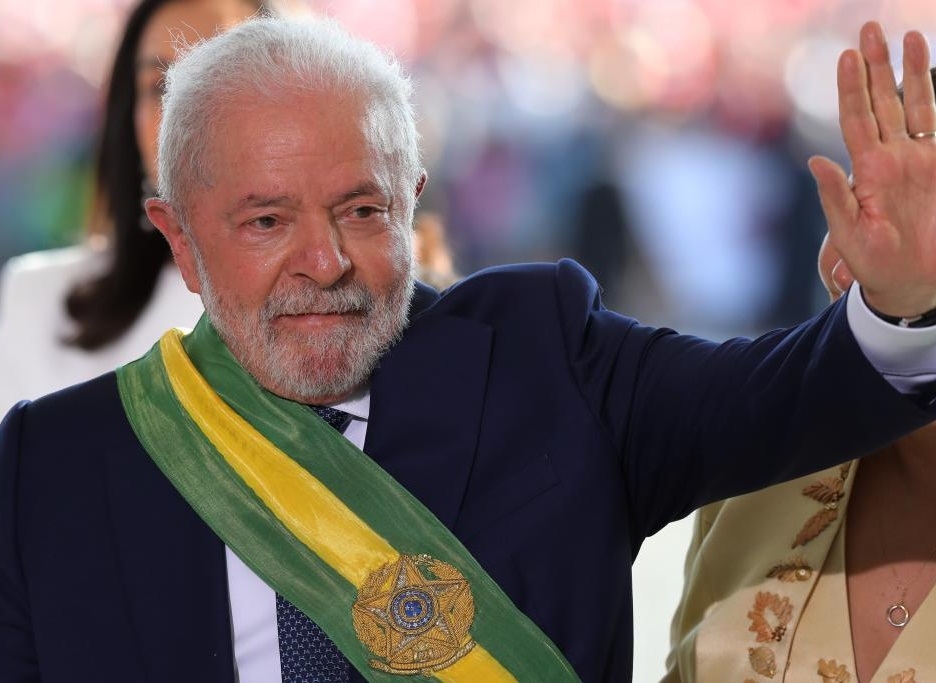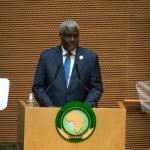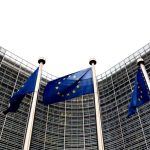Raila Odinga of Kenya, Mahamoud Ali Youssouf of Djibouti and Richard Randriamandrato of Madagascar are seeking to be elected as chairperson for the 55-member state African Union…reports Asian Lite News
Three African politicians seeking to head the African Union detailed their plans on Friday for regional security amid conflicts and political coups while strongly advocating for inter-Africa trade among other issues.
Raila Odinga of Kenya, Mahamoud Ali Youssouf of Djibouti and Richard Randriamandrato of Madagascar are seeking to be elected as chairperson for the 55-member state African Union.
They participated in a two-hour debate Friday in Ethiopian capital Addis Ababa in which they all advocated for two permanent seats for African countries in the U.N. Security Council to effectively represent the continent with the youngest population.
Odinga said that two permanent seats with veto power were “a must for Africa” and that this was “only fair” since the continent has more than 50 countries.
Randriamandrato urged member states to cease the opportunity and “speak with one voice on the choice of who will represent Africa in the UNSC.”
The three are seeking to convince most African countries before the February election to succeed African Union Chairperson Moussa Faki, who has served for two terms.
The African Union has faced several challenges that include conflict in member countries and political coups that have seen five member states expelled from the union, making regional security a major theme in Friday’s debate.
Youssouf said that regional security could be enhanced if the resources for a regional standby force were increased to reduce the overreliance on foreign partnerships for resources. “When there is no unity of purpose among neighboring countries peace will be compromised,” Youseff said.
Randriamandrato encouraged countries to take charge of their internal security while cautioning that foreign military bases should be “a thing of the past” because they “could be a source of conflict.” Despite the continent’s young population of 1.3 billion that is set to double by 2050, regional trade has faced challenges that were addressed in the Friday debate.
Odinga said that Africa had a “huge domestic market” that it could leverage on for economic transformation by opening up opportunities for trade between African countries.
Youssouf proposed a payment compensation system that would ensure countries don’t lose out while trading in different currencies adding, “are we going to have a single currency, why not?” Randriamandrato said that regional economic blocs like the Common Market for Eastern and Southern Africa had a huge role to play in easing inter-Africa trade.
The African Union has several proposed reforms on its structure and leadership aimed at achieving its purpose, and all candidates promised to implement the reforms if elected.
Youssouf said that key reforms in the union were facing a funding bottleneck and that “it has to change,” adding that he wouldn’t impose it on member states but would “advocate for it.”
Sudan suspended from AU
The African Union Peace and Security (PSC) Council suspended the participation of the Republic of Sudan in all AU activities until the effective establishment of a civilian-led Transitional Authority, as the only way to allow Sudan to exit from its current crisis.
While reaffirming their solidarity with the people of The Sudan in their aspirations to a constitutional framework and institutions that would allow the country to make progress in its efforts towards the democratic transformation of the country, the PSC further decided that, should the Transition Military Council fail to hand-over power to a civilian-led Transitional Authority, the Council would impose punitive measures on individuals and entities obstructing the establishment of the civilian-led Transitional Authority.
The suspension of Sudan follows what PSC termed as the lack of progress towards the establishment of a civilian-led Transitional Authority since its initial meeting following the coup d’etat of April 2019 in Sudan.
The PSC condemned the violence that led to the loss of lives and injuries among civilians; further requesting the Chairperson of the AU Commission, in close coordination with the relevant stakeholders in Sudan, IGAD and the African Commission on Human and Peoples’ Rights (ACHPR), within the framework of relevant AU instruments relating to the fight against impunity, to make concrete proposals on the modalities for an investigation into the deadly events which took place from 3 June 2019 in Sudan and submit the report the Council.
Call for collective efforts to curb hate speech
African Union Special Envoy on the Prevention of Genocide and Other Mass Atrocities Adama Dieng called for urgent actions to combat racism, negative ethnicity, xenophobia, and all forms of intolerance in the region.
Speaking at the International Conference on Genocide Prevention in Kigali, the Rwandan capital, Dieng said on Monday that the Rwandan genocide against Tutsi in 1994, in which about a million people were killed, did not start with machetes but dehumanisation of the Tutsi ethnic group. He noted that the conflict in South Sudan started as a political crisis, where hate speech across ethnic lines was encouraged and instigated.
Quoting United Nations Secretary-General Antonio Guterres, Dieng said hate speech is, in itself, an attack on tolerance, inclusion, diversity, and the very essence of human rights norms and principles.
“We should combat intolerance, treat our fellow human beings with dignity and respect. We cannot just be speaking about preventing genocide and then fail to take urgent actions to prevent it,” he said.
ALSO READ: Global Help Needed for Africa’s Kids


